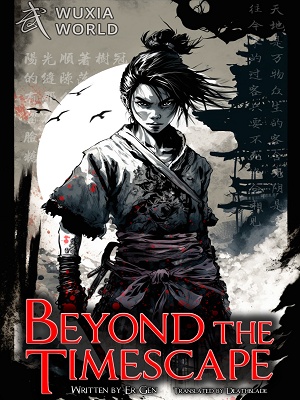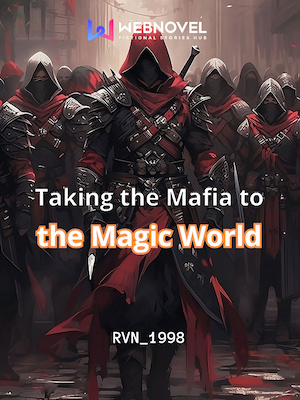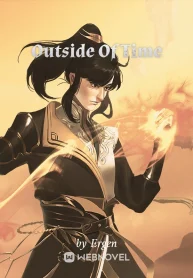Chapter 64:
Chapter 64
“Death to Japan!”
Even Roosevelt, who was famous for his cold and calm temperament, shouted like this.
The Japanese were cowardly.
They used a sneaky trick to strike Germany and then hit the back of the head of the United States, which was already sore.
Germany was a worthy rival, a great power that once competed with the world for hegemony. But the fact that the inferior yellow race dared to do such a thing to the great America was a huge blow to the pride of the already angry Americans.
“Last night, the Japanese army attacked Hong Kong. The Japanese army attacked Guam and the Philippine Islands. The Japanese army attacked Wake Island and Malaya. Japan deliberately deceived the United States government by declaring that they wanted peace, but delivered a declaration of war only 30 minutes before the attack!”
Japan used the same trick that Germany had used.
Hull, the Secretary of State, had to read down the vague declaration of war from Japan, which consisted of 14 points, while hearing the news of the attack on Pearl Harbor.
It was hard to tell whether this was a declaration of war or something else, written in the typical circumlocutory style of the Japanese.
The State Department even wondered for a moment if someone other than Japan had attacked them.
Roosevelt continued his speech with a booming voice, as if he had become Churchill.
“I do not know how long this retaliation for this vile surprise attack will last. But the citizens of the United States can end this war with victory with righteous power. To prevent this kind of injury from ever happening to America again! We will definitely protect our land and people!”
The vote in Congress was unsurprisingly in favor of war. Without a single exception.
“Congress declares war unanimously!”
“Wow! Long live America! God bless America!”
The budget increase for war was easily passed amid the enthusiastic support of the congressmen.
The congressmen competed to volunteer to participate in the war themselves.
“I can also participate in the war! I’m a veteran who fought in several wars!”
“Congressman, the United States Army and Navy need you more to allocate a budget for us in Congress than to join us as a single soldier. Please...”
The 70-year-old congressman with white hair swung his cane and shouted that he could also fight as an officer.
He claimed that he had fought in a war not of the last decade, but of the last century, the American-Philippine War of 1898.
The generals had to sweat to dissuade the old congressman from going back to the army.
Of course, not everyone in Congress was fervently supporting the war.
Robert Taft, Roosevelt’s longtime rival and a heavyweight of the Republican Party, supported Roosevelt unusually but condemned the incompetence of the administration.
“Japan will be held responsible for spilling American blood! And... The administration cannot be free from this responsibility! They will be held accountable for wasting American blood!”
Roosevelt and his appointed diplomats failed to notice the signs that Japan would attack and allowed a surprise attack. His appointed generals failed to guard and allowed a surprise attack.
Twice!
On top of that, MacArthur’s ‘total war’, which was influenced by his hardline conservative tendencies, had an impact.
Roosevelt’s cronies all retreated, but MacArthur was still defending the Philippines!The initial posting of this chapter occurred via Ñøv€l-B!n.
The Republican Party wanted to regain power through this war.
FDR had just challenged for an unprecedented third term as president last year, and despite Roosevelt’s breakthrough, the Republicans failed to regain power.
“If there is no debtor, then the creditor goes bankrupt. Isn’t that right? Hahahaha!”
“Comrade Secretary is right! Haha!”
With Pearl Harbor’s outbreak of war, Soviet Union’s position changed by 90 degrees if not 180 degrees.
Until Germany’s Panama surprise attack and Japan’s Pearl Harbor attack, America was a bystander or at best a benefactor. The public opinion was not favorable to ‘Europe’s war’ and Roosevelt was unable to take active measures because of this.
But when fire fell on their feet, things changed.
A two-front war with Germany, which absorbed France and Italy’s fleet, and Japan, which rose to second place in world naval power after Britain’s collapse, drove Americans into fear.
Their mighty Pacific Fleet was literally shattered and Britain’s eastern colonies were also being trampled one by one.
That’s why Soviet Union became more important as a ‘friend’ who could hit Japan back.
“Of course... Zhukov, do you know why Marx could achieve such great results?”
“Huh? Uh... I don’t know well...”
Zhukov seemed confused by this sudden joke.
No, what are you talking about all of a sudden? His expression showed that.
“Because he had a rich friend like Engels! Hahahaha!”
America was generous.
They agreed to postpone their intervention in Europe until after they settled their own front line by claiming that it would be too much for Soviet Union to ‘desperately’ fight against Germany on both fronts.
Maybe this was right from America’s perspective.
If Soviet Union’s declaration of war breaks their non-aggression pact with Japan now then American supplies crossing Pacific Ocean to Vladivostok would disappear into cold waters of North Pacific Ocean.
From America’s perspective it could be a disaster where they try to get help from Pacific Ocean but end up collapsing Europe instead.
And our rich friend did not hesitate to help his ‘friend’.
Roosevelt handed over all American ships carrying supplies on existing lend-lease routes to Soviet shipping.
Japan allowed movement of supplies under premise that ‘Soviet ships’ did not carry military supplies and America used this trick to hand over their ships just to keep Soviet Union as an ally.
Also, since they only banned transportation of military supplies, America realized that equipment for producing military supplies did not apply and started to send their old military production equipment.
They would replace them with new production equipment made with huge investments.
What Soviet Union received was at best second-class equipment, but it was better than nothing.
No, actually, even America’s second-class equipment was first-class or more for Soviet Union.
I wanted to scold them for getting hit by Pearl Harbor even though I told them so much, but I had to suppress it because I was grateful.
My ‘sincerity’ of condoling America’s tragedy was strictly kept as a diplomatic secret to avoid unnecessary provocation of Japan.
Anyway, America seemed to be ready to go to war properly.
The sleeping giant had risen. What would Germany and Japan think of America’s rapid expansion?
Especially Germany, who had already been beaten by us and picked a fight with America.
I was very curious about the expression of the German General Staff who regretted it by now.
“Uhahahaha!!”







